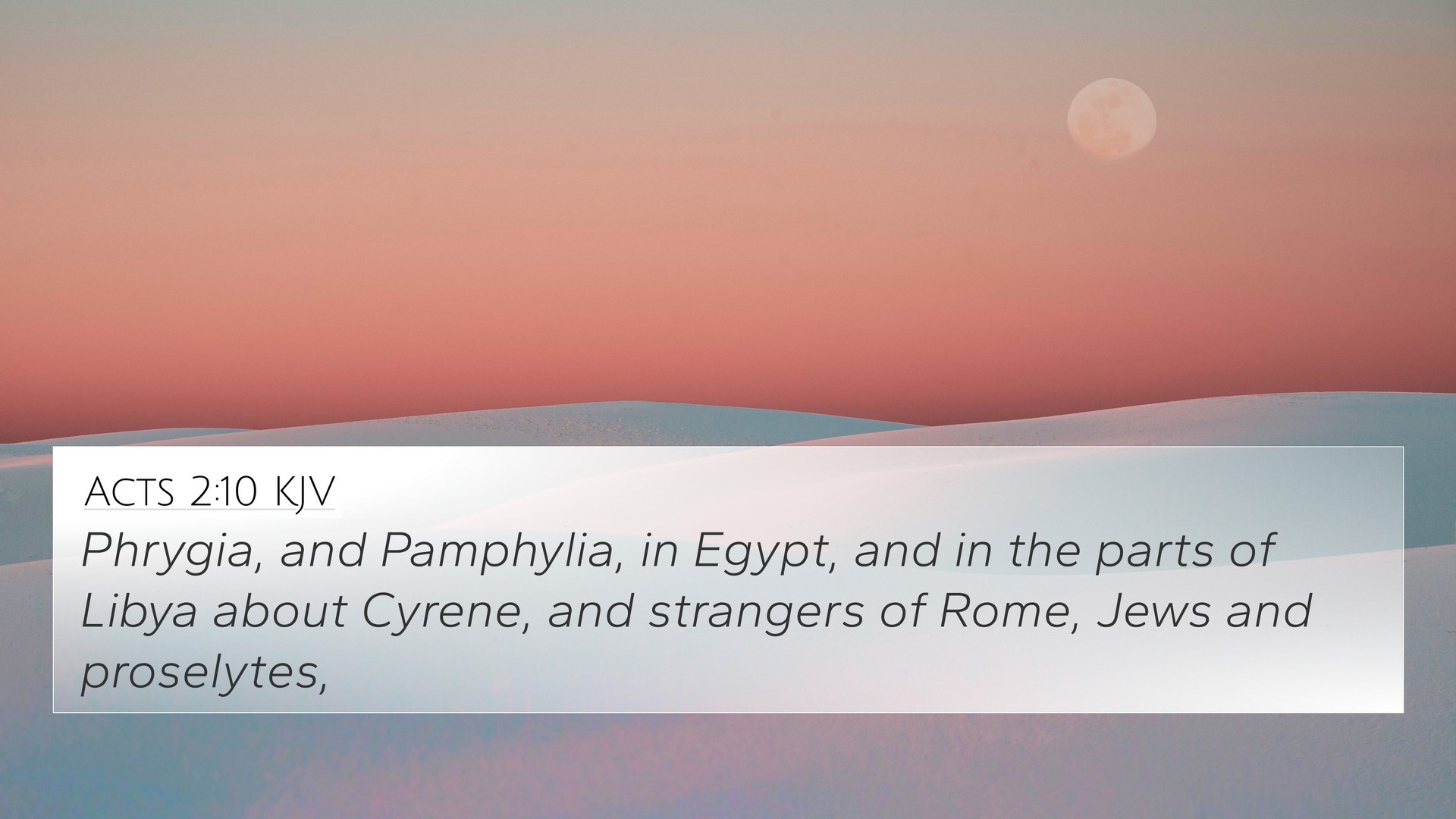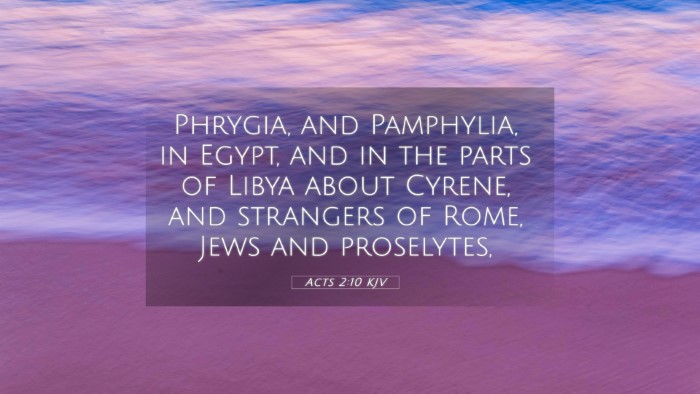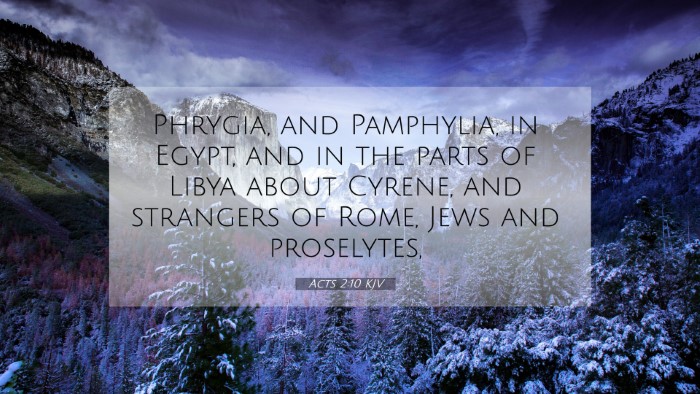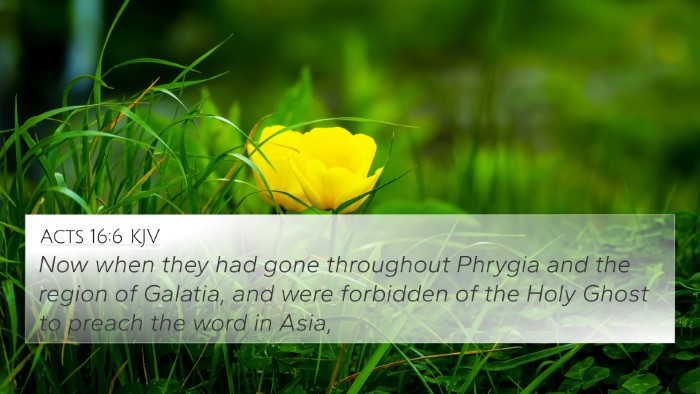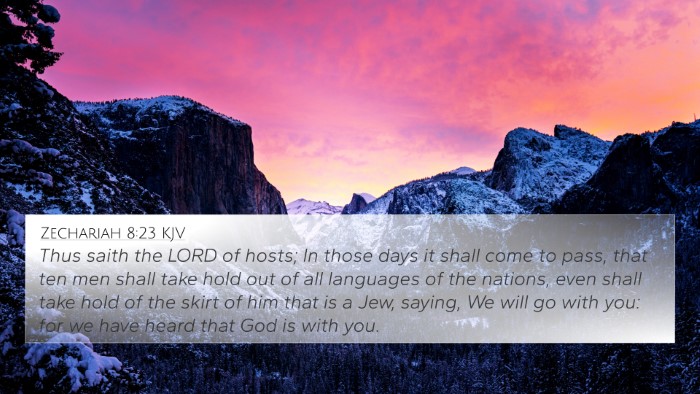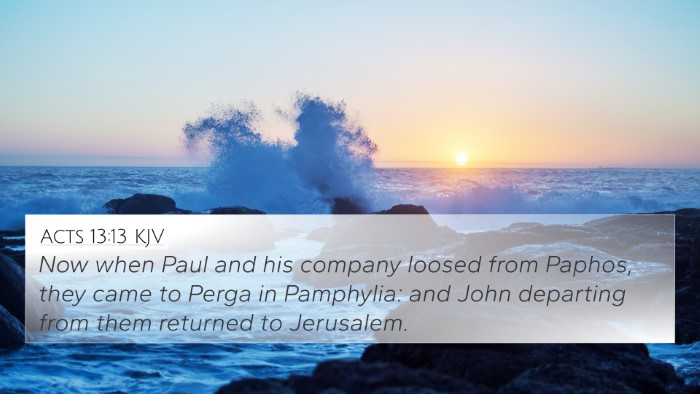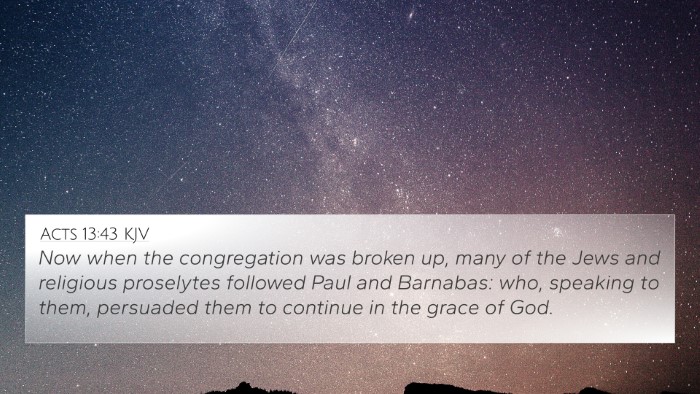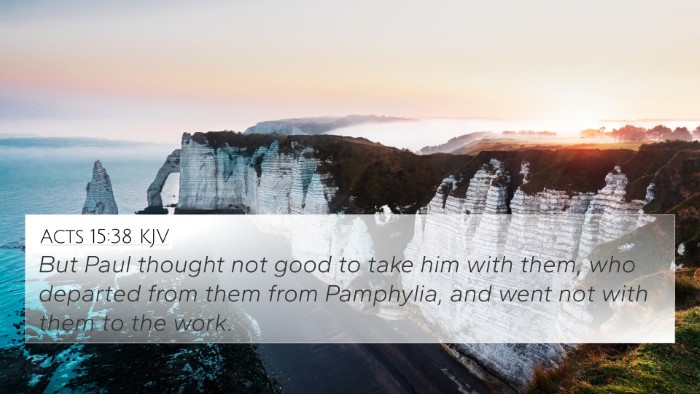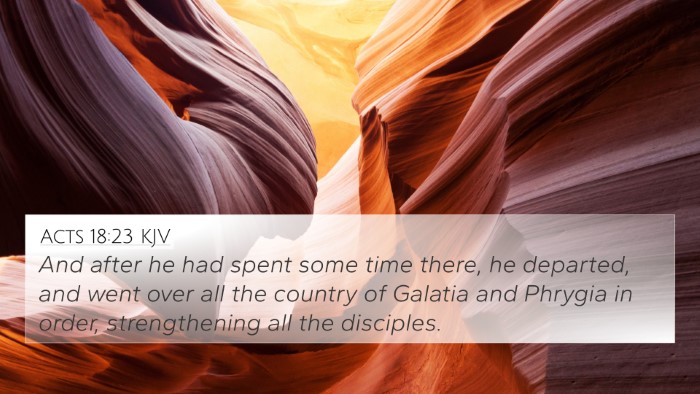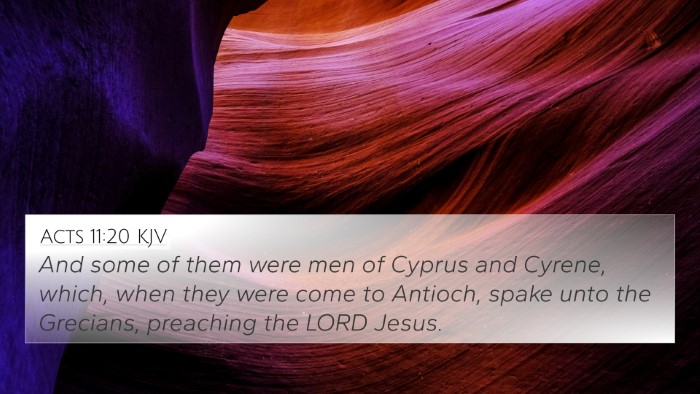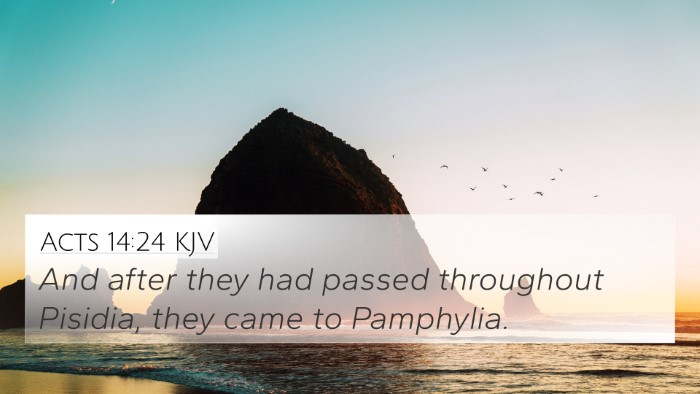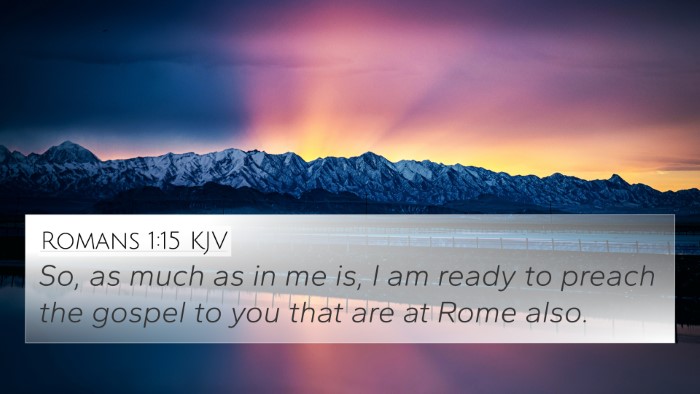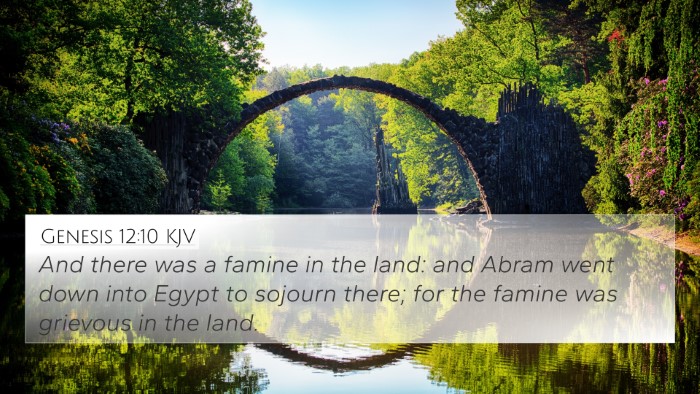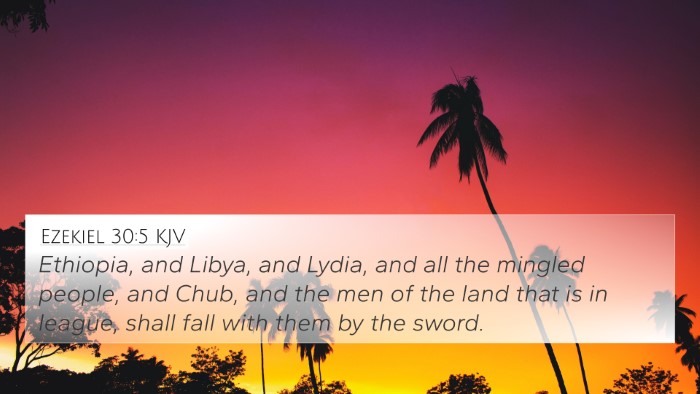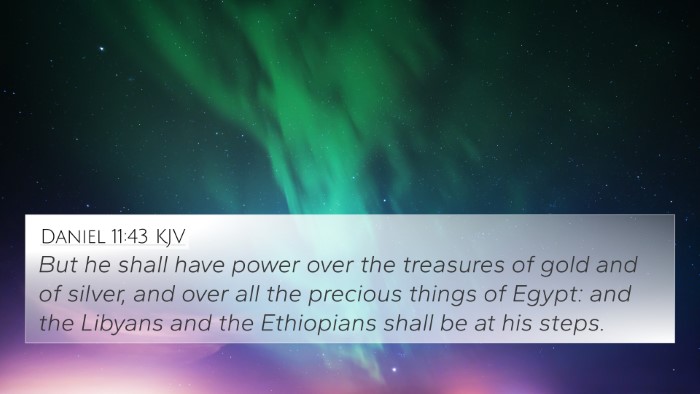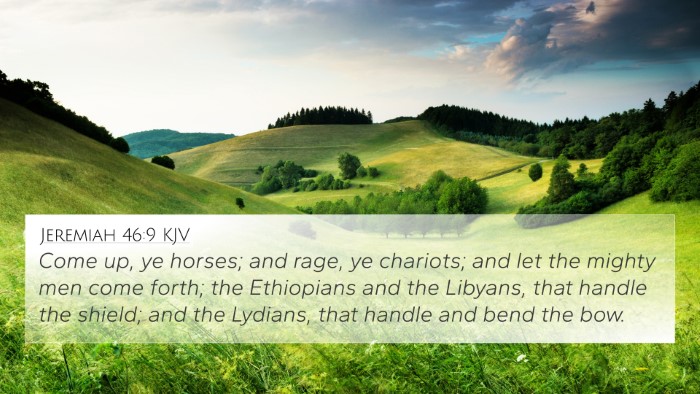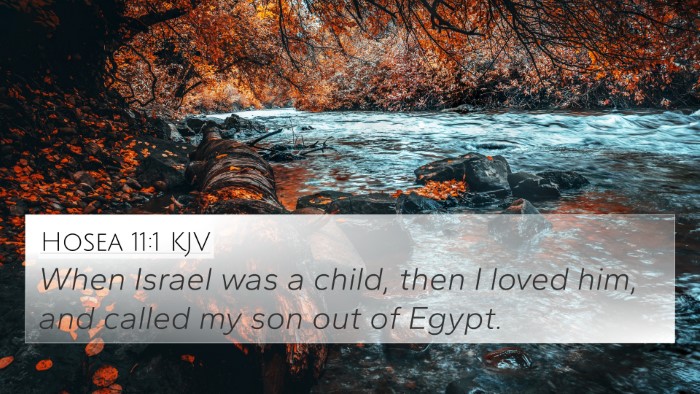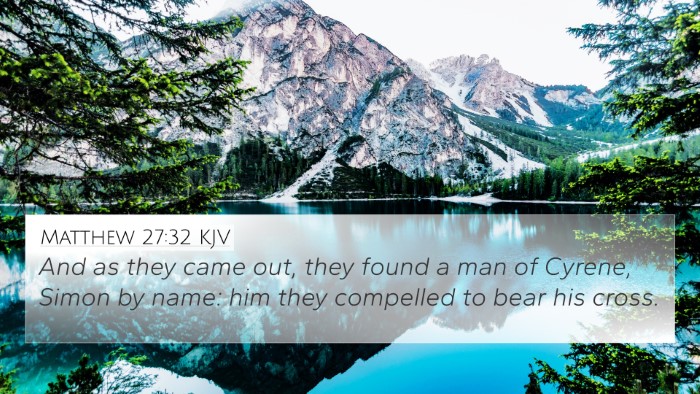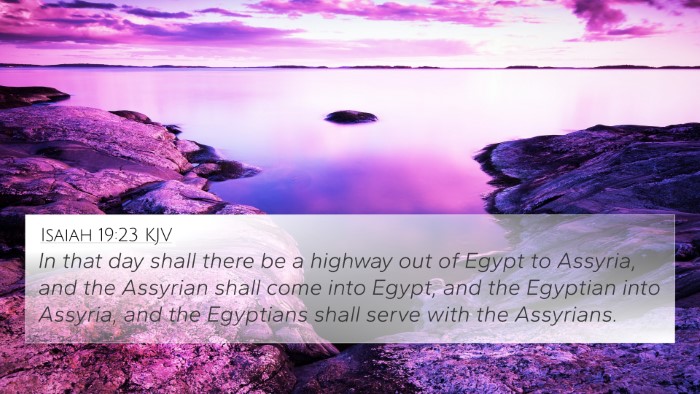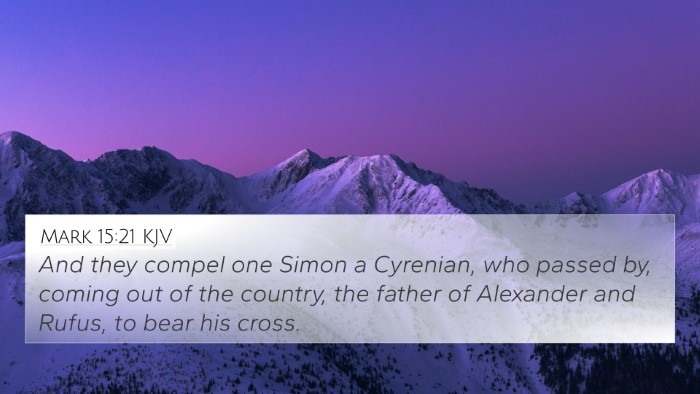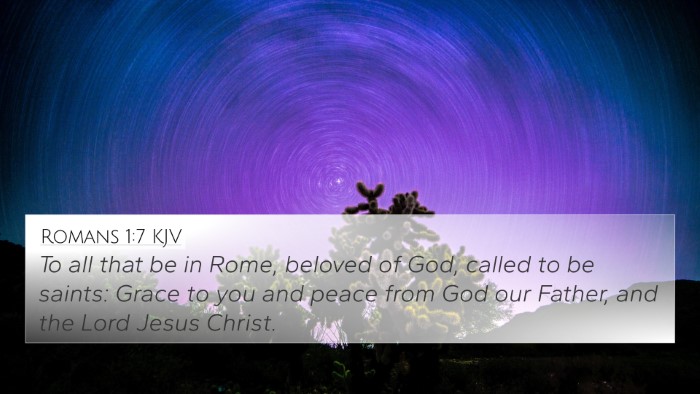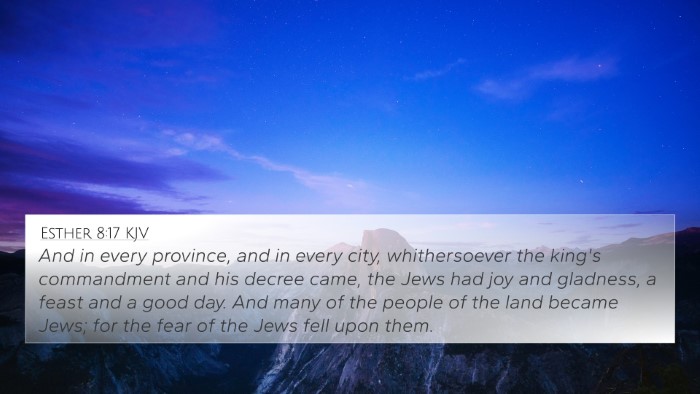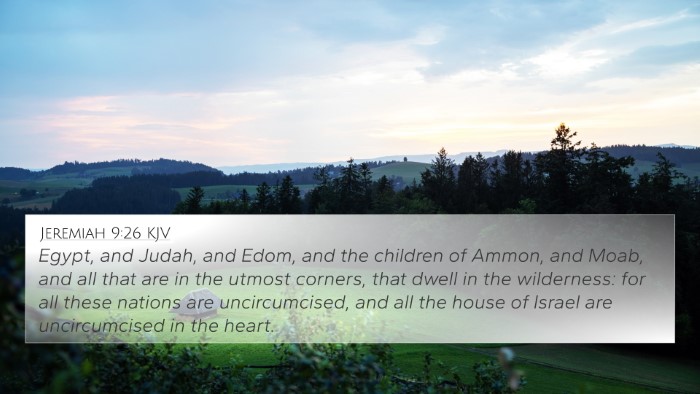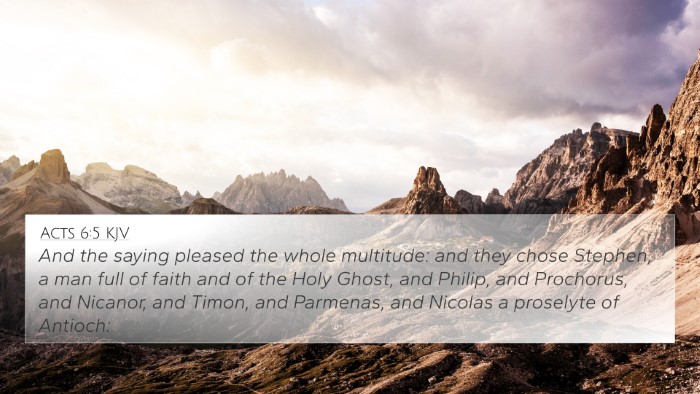Understanding Acts 2:10
Acts 2:10 states, "Phrygia and Pamphylia, Egypt and the parts of Libya about Cyrene, and visitors from Rome." This verse refers to the diverse group of individuals who were present in Jerusalem during the day of Pentecost, highlighting the global reach of the early Christian message.
Summary of Meaning
This verse emphasizes the spread of the Gospel beyond the local Jewish community and into various regions, connecting to the broader theme of the Great Commission (Matthew 28:19-20). The mention of different geographies underlines the theme of inclusivity found throughout the New Testament.
Insights from Public Domain Commentaries
Matthew Henry's Commentary
Matthew Henry emphasizes the significance of the diverse nationalities mentioned in this verse. He notes that the inclusiveness of the Gospel invites all people, regardless of their cultural or geographical backgrounds, thus fulfilling the promise that the message of Jesus would reach "the ends of the earth" (Acts 1:8).
Albert Barnes' Commentary
Albert Barnes points out that the presence of visitors from various locations at Pentecost demonstrates God's plan for the church to be a universal community. The mention of these locations serves as an acknowledgement of Jewish dispersion and suggests that the Gospel will soon reach these regions through those who were converted at Pentecost.
Adam Clarke's Commentary
Adam Clarke elaborates on the geographical locations listed, explaining their historical contexts. He indicates how these regions were known for their distinct cultures and languages, which underscores the miracle of speaking in tongues that allowed the apostles to communicate the Gospel effectively to all present during this pivotal moment.
Cross-References and Thematic Connections
This verse is interwoven with several other scriptures that help to deepen understanding:
- Acts 1:8 - "You will be my witnesses in Jerusalem, and in all Judea and Samaria, and to the ends of the earth." This verse illustrates the expansion plan that Acts 2:10 represents.
- Matthew 28:19-20 - The Great Commission calls for discipleship and baptism among all nations, reflecting the same theme of global outreach.
- John 3:16 - "For God so loved the world..." This verse supports the inclusivity expressed throughout Acts 2:10.
- Revelation 7:9 - "...a great multitude that no one could count, from every nation, tribe, people and language..." shows the culmination of the diverse mission initiated at Pentecost.
- Isaiah 49:6 - "I will also make you a light for the Gentiles..." connects the Old Testament's prophecy concerning the spread of God's salvation.
- Romans 10:12 - "...the same Lord is Lord of all and richly blesses all who call on him." This verse emphasizes the accessibility of the Gospel.
- Galatians 3:28 - "There is neither Jew nor Gentile, neither slave nor free, nor is there male and female, for you are all one in Christ Jesus." This portrays the transformative unifying aspect of the Gospel.
Exploring the Connections Between Bible Verses
Each of these references contribute to an understanding of the vast scope of God’s mission. When engaging in Bible verse cross-references, it is essential to grasp how such texts coexist and support one another, thus enhancing biblical study and interpretation.
Tools for Bible Cross-Referencing
Utilizing Bible concordance or a Bible cross-reference guide can greatly facilitate the process of studying scriptures such as Acts 2:10. Such tools allow for efficient navigation through related passages, thereby enriching one's understanding.
Cross-Referencing Bible Study Methods
To comprehend the connections between Bible verses, consider exploring the motif of inclusivity and diversity found in both the Old and New Testaments. Parse how these themes are echoed in different texts, leading to a holistic perspective of scriptural teachings.
Conclusion
Acts 2:10 is a profound verse that reflects the early church’s mission and its forward-looking, inclusive nature. Recognizing its connections with other Scriptures, as well as utilizing reliable tools for cross-referencing provides a richer understanding of God's message. This posture of study not only nourishes one’s faith but also encourages a communal exploration of scripture. Continually seeking Bible verses that relate to each other can transform personal and group Bible studies into deeper, more insightful experiences.
